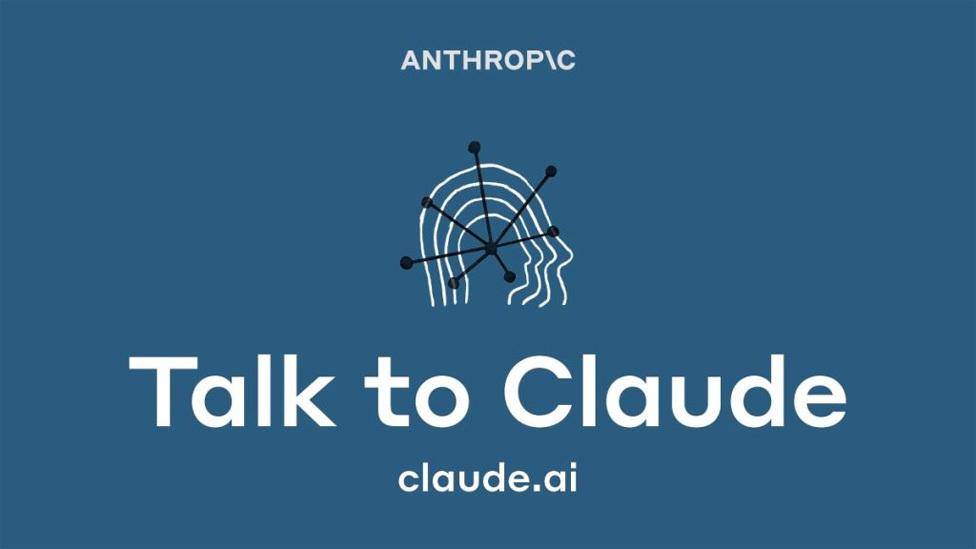Smart hospitals are the pinnacles of innovation in the medical industry, leveraging cutting-edge technology to transform every medical sector, including patient care and management. Smart hospitals are bringing a revolution in the health sector through the latest and most successful measures and are the combination of the latest technologies, such as the Internet of Things (IoT), telemedicine, and robotics. This article addresses how artificial intelligence technology is redefining patient care in smart hospitals.
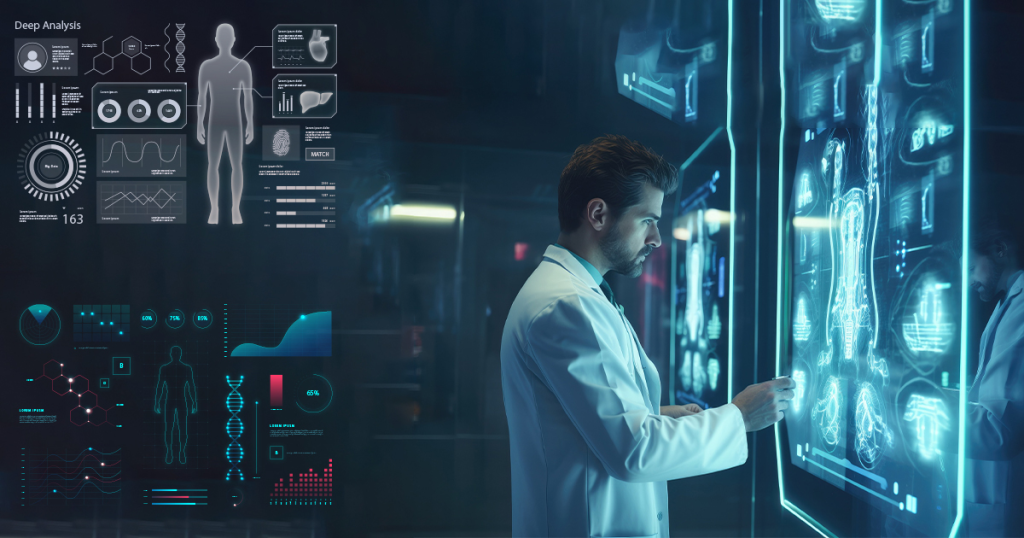
What are the Smart Hospitals?
Smart hospitals are the advanced form of healthcare facilities that bring advanced technologies like IoT, AI, and data analytics for patient care and operational optimization. While science fiction is rapidly moving toward the real world around us, the medical sector is one of the most attractive centers for the use of advanced technologies, especially artificial intelligence.
The advancement in AI technologies gives birth to the latest trends, such as the use of generative AI in clinical workflow, utilizing AI to predict the disease before its onset, and voice-tapping AI systems for clinicians. Healthcare centers using such advanced technologies are known as smart hospitals.
Role of AI in Redefining Patient Care in Smart Hospitals
Artificial intelligence is the core of a transformative shift in healthcare and reshaping the way patients get care and treatment in smart hospitals. Experts say that advancements in technology and other sectors have helped them to enhance the diagnosis to personalized treatment. Here are some crucial ways AI is bringing innovation and advancement with respect to patient care in smart hospitals.
AI-Powered Diagnosis
The AI is the expert in analyzing a huge amount of data in the form of texts, images, or voices, which improves complex data analysis with unmatched precision and rapid diagnosis. Traditional hospitals rely on medical imaging techniques such as MRI, X-ray, and CT scans for abnormality detection for tumors, fractions, or other abnormalities.
This information is fed into the machine learning (AI subdomain) algorithms that provide insightful diagnoses for predictive analysis in smart hospitals. Medical experts utilize this information and detect chronic diseases such as cancer, diabetes, and heart disease before any visible symptoms appear.
AI-based Virtual Assistance
Smart hospitals are utilizing AI-powered apps, and virtual assistants are narrowing the communication gap between healthcare providers and patients. The AI assistance in the app does not only allow instant help but also handles a wide range of functions, such as:
- Virtual consultation
- Apppointment setteling
- Answering the frequently asked questions
- Symptom tracking
- Diagnose assistance
- Basic health advice
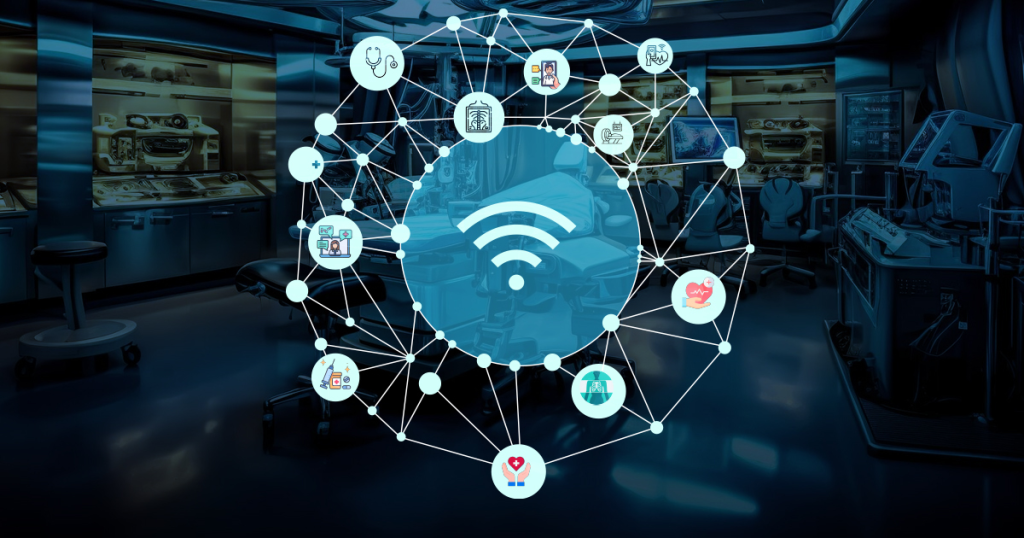
These apps have a chatbot where the patient can communicate and easily get virtual assistance. This reduces the administrative burden and provides quality care to the patient requiring critical and instant care. In some cases, the patients seem more comfortable with the virtual AI assistants than talking to the human health care providers for privacy issues.
At Weborik Hub, we are assisting our customers to include AI assistance in their app that helps them provide instant replies, human-like responses, and accurate replies. We know that people are embracing the power of AI in their businesses at a rapid rate. The future is all about having powerful and accurate AI power in the systems.
Personalized Assistance with AI
The smart hospitals collect the patient’s personal data, such as disease history, genetic information, lifestyle routines, age, and gender, to tailor the treatment plans. For instance, the Tempus is the AI platform in the smart hospital that analyzes the genomic data to deal with cancer treatment. As a result, it provides insightful information and improves the survival rate.
Another good example we see for personalized assistance is PathAI, which provides precise pathology assistance to the patient according to its profile and data. It helps healthcare experts to perfectly diagnose and study the details that are impossible with human diagnosis. In the future, this scope is expected to expand at every level.
AI Surgical Assistance in Smart Hospitals
The scope of AI assistance is not just limited to the diagnosis and text-oriented help in smart hospitals, but practically, the surgical department is utilizing its power for deep analysis unattainable with human power. AI-powered robotic systems like the Da Vinci Surgical System are working in the surgical department, assisting humans for accuracy.
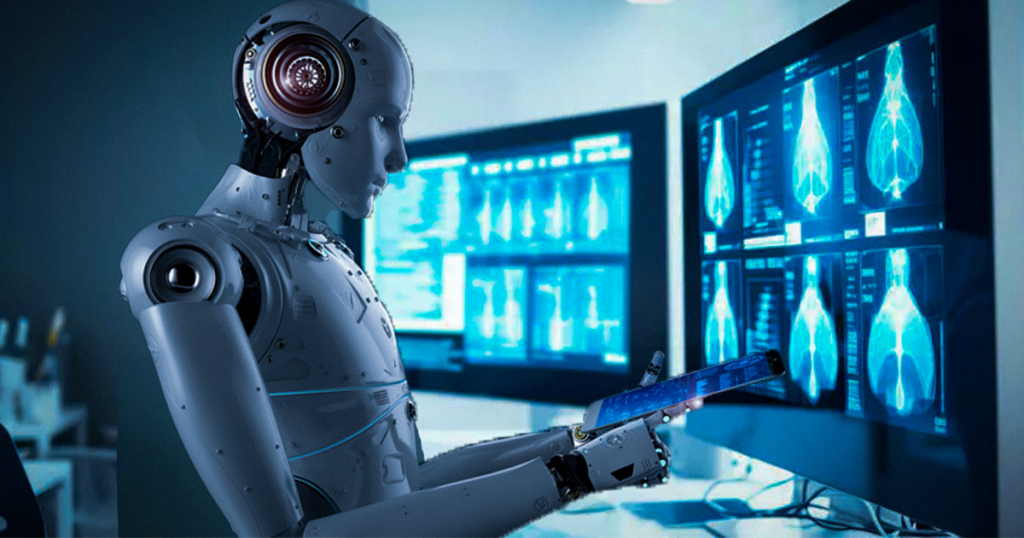
The AI-powered surgery methods are proven to leverage faster recovery time, fewer complications, and small incisions, and so a significant reduction in the patient’s hospital stay time has been seen. The AI creates the simulations and designs and provides insightful data that helps the surgeons understand the complications and risk factors.
Key AI Technologies Underpinning Smart Hospitals
In smart hospitals, the latest technologies like AI, IoT, and data analysis work closely and provide collective information to the healthcare experts. The AI is the backbone for the processing and data collection and works closely with the sensor’s data and other information in the system.
Edge Computing in Smart Hospitals
A useful AI technique working in smart hospitals is Edge Computing which comprises the algorithms working on the edge so the data processes are closer to the source. In other words, the edge computing algorithms have recent and real-time data from the patient’s bedside or directly from the diagnostic machines (CT Scans, X-rays) so these algorithms may immediately provide the problem’s solution.
This reduces the latency, and if the algorithm is designed for critical care, instant and immediate decision-making may save the life.
Digital Twins in Smart Hospitals
In the smart city sphere, another paramount concept that smart hospitals are adopting with great interest is known as the digital twin. It is the virtual copy of the hospital acting like a computer model where the administration simulates various scenarios and operations before practicing them in the hospital or on patients.
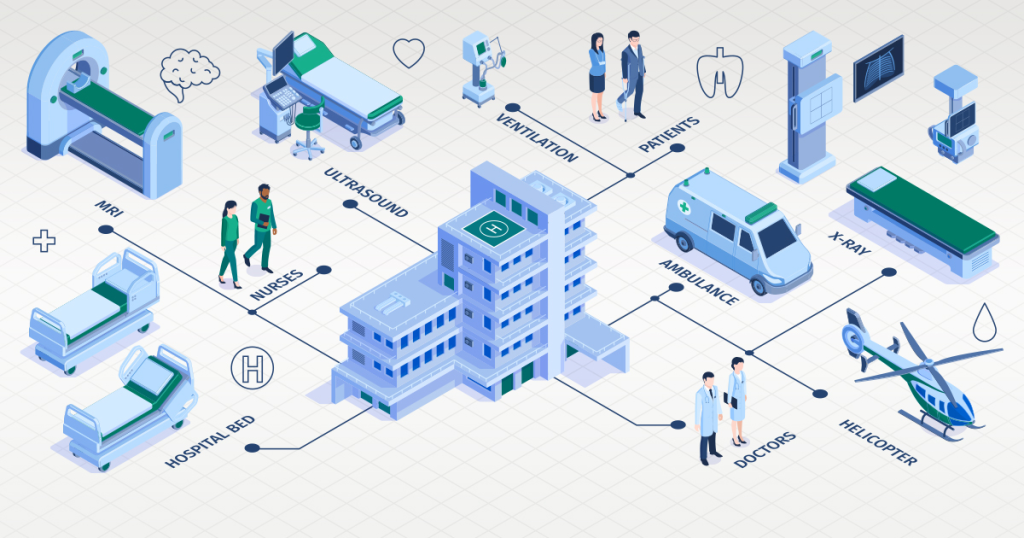
The digital twin’s concept is a great step in the patient’s care where the experimentation is not directly done on real-time humans or hospitals but is tested on the models. The managers can figure out and practice how making any change in the patient’s routine or hospital management will affect the operations. For instance, they may figure out how many nurses or equipment will be required with the sudden increase in number of patients during the epidemic or other disease attacks.
Summary
The healthcare landscape is undergoing huge technical changes and advancements after the introduction of AI; every sector has embraced it in their operations. Smart hospitals are the latest form of healthcare sector working as a combination of traditional hospital operations, the Internet of Things, data analysis, and artificial intelligence. With respect to patient care in smart hospitals, AI is empowering multiple operations, such as early and accurate diagnosis, working as a virtual assistant through apps and chatbots, and surgical assistance in smart hospitals. In the future, the scope of AI seems to dominate the hospital’s performance, and experts are expecting that AI, robotics, and IoT will run the smart hospitals without any human assistance.



